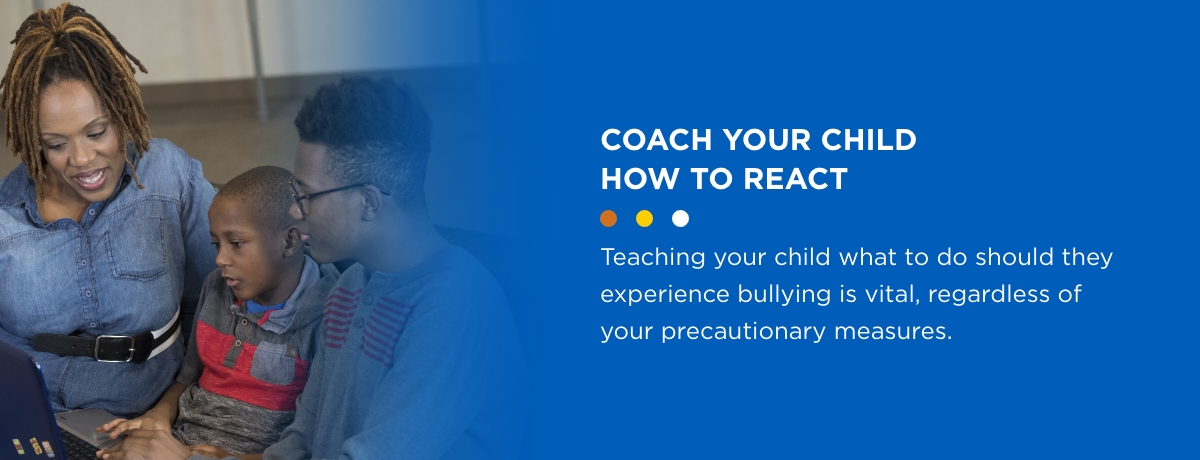No parent wants to see their child struggle with bullying in school, but unfortunately, bullying is common in school. Bullying is unwanted, aggressive, or coercive behavior that is repetitive or has the potential to become repetitive. It is often perpetrated by a more powerful student or students who target a particular individual or group they perceive as weak. There are technically three different types of bullying:
- Verbal: The use of insults, name-calling, taunting, racist comments, and inappropriate sexual language.
- Social: Purposefully excluding someone or spreading rumors about them.
- Physical: Damaging or hurting a person’s body or possessions.
The National Bullying Prevention Center publishes statistics on the rates of bullying and its impacts, including the following facts:
- One out of every five students reports being bullied in school.
- Female students report higher rates of bullying.
- Students who are bullied are more likely to suffer from depression, anxiety, and lower academic achievement.
Dealing with bullying can be difficult for everyone involved, and it’s crucial to address the problem before it worsens. Continue reading to learn how you can combat bullying situations in school.
1. Teach Your Kids About Bullying
Preventing bullying in schools is mostly about proper education. Coaching your child about bullying and how to identify it may ensure the harmful behavior does not continue. Explain that bullying can take different forms — verbal, social, and physical — and there is a line between friendly teasing and more harmful behaviors.
One of the most important things to teach your child is that being bullied is not their fault. Children should understand that they never deserve to be bullied, and there are ways to prevent and stop unwanted behaviors. Teach children to recognize the signs of bullying and assure them you will help them if they experience it.
Additionally, teach your children about when their behavior could cross the line. While they may see other students pick on a smaller or younger peer, that doesn’t make it right. Instill compassion and sensitivity in your child, so they don’t exhibit bullying behaviors.
2. Maintain Open Communication
Keeping lines of communication open is integral to dealing with bullying. Having daily check-ins about your child’s school day and paying close attention to their body language can help you keep up with how your child is doing. Simply knowing you are there can help them feel more comfortable confiding in you and more likely to discuss any issues they experience with bullying.
Explaining that your child should come to you should they experience any unwanted behavior is crucial. Targets and victims of bullying behavior often don’t alert adults about bullying until things become severe or unmistakable. Sometimes the adults in their lives never know how much they suffer. Children avoid alerting adults for various reasons, including:
- Not wanting to appear weak.
- Thinking the adult won’t intervene or care.
- Fearing retaliation from the bully or bullies.
- Not recognizing they’re experiencing subtle bullying.
Children who know adults who care about their experiences and will intervene in bullying situations are more likely to speak up when they experience bullying. One essential step you can take to combat bullying is fostering an environment where your children feel safe speaking with you about it.
3. Speak With the School Counselor
A school counselor is a licensed or certified educator whose job is to ensure student success by implementing a counseling program at the school. Major duties of a school counselor include:
- Academic planning and strategies.
- Postsecondary counseling.
- Student advocacy.
- Short-term counseling.
- Collaboration with families, teachers, and administrators.
Establishing communication with the counselor at your child’s school is an excellent way to deal with the effects of bullying. If you suspect your child might have a persistent conflict with a peer in school, talk to the school counselor. They are specially trained to deal with situations like bullying and can be a great resource.

4. Coach Your Child How to React
Teaching your child what to do should they experience bullying is vital, regardless of your precautionary measures. As part of your plan to prepare your child to deal with bullying in school, coach them on how to react should they experience it.
If Your Child Experiences Bullying
If your child experiences bullying, you can offer them advice on how to de-escalate or avoid unwanted situations:
- Use the buddy system: If your child notices they seem to be targeted when they’re alone, avoid the situation by asking a peer to be their buddy when they go to the bathroom or walk down the hall.
- Practice nonreaction: Ignoring bullies can be an effective tactic, as most bullies thrive on getting a reaction. Keeping a calm demeanor during the incident takes that power away from the bully, and they’ll be more likely to get bored.
- Inform an adult: Teach your child to immediately find an adult to confide in, especially in cases of physical bullying.
- Use language to de-escalate: Sometimes, a simple “please stop” or “I don’t like that” can help de-escalate a situation in a nonantagonistic way.
If Your Child Witnesses Bullying
Even if your child has never experienced bullying firsthand, chances are they’ve witnessed bullying at some point. Coach them on ways to intervene when they do see bullying. Telling an adult and checking in on the affected student to ensure they feel safe are ways your child can help others.
5. Look for Warning Signs
The warning signs of bullying are often subtle. If you know what to look for, you will be better equipped to recognize it. Some of the warning signs of bullying in school children include:
- Frequently lost items.
- Lower self-esteem and confidence.
- Avoidance of school or social situations.
- Nightmares and difficulty sleeping.
- Unexplained injuries.
- Signs of impacted mental health, such as anxiety or depression.
If you notice any warning signs, talk to your child or schedule an appointment with the school counselor.
Cyberbullying
It can be challenging to identify when children are experiencing bullying online. One of the most common markers of cyberbullying is if children express unhappiness after spending time online. Traditional warning signs for bullying hold true as well.
If you suspect your child is being bullied online, talk to them about ways to have a more enjoyable online experience, which may mean halting the use of a certain app or site where the bullying takes place.
Contact CCA Today
CCA curates a safe learning environment for children with a particular focus on anti-bullying. CCA has firmly established reporting and response procedures and offers a holistic support system for students and families.
Reach out to CCA today to learn more about how we work to prevent bullying within our school system.




